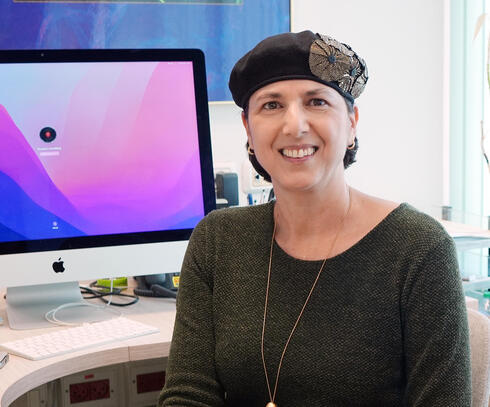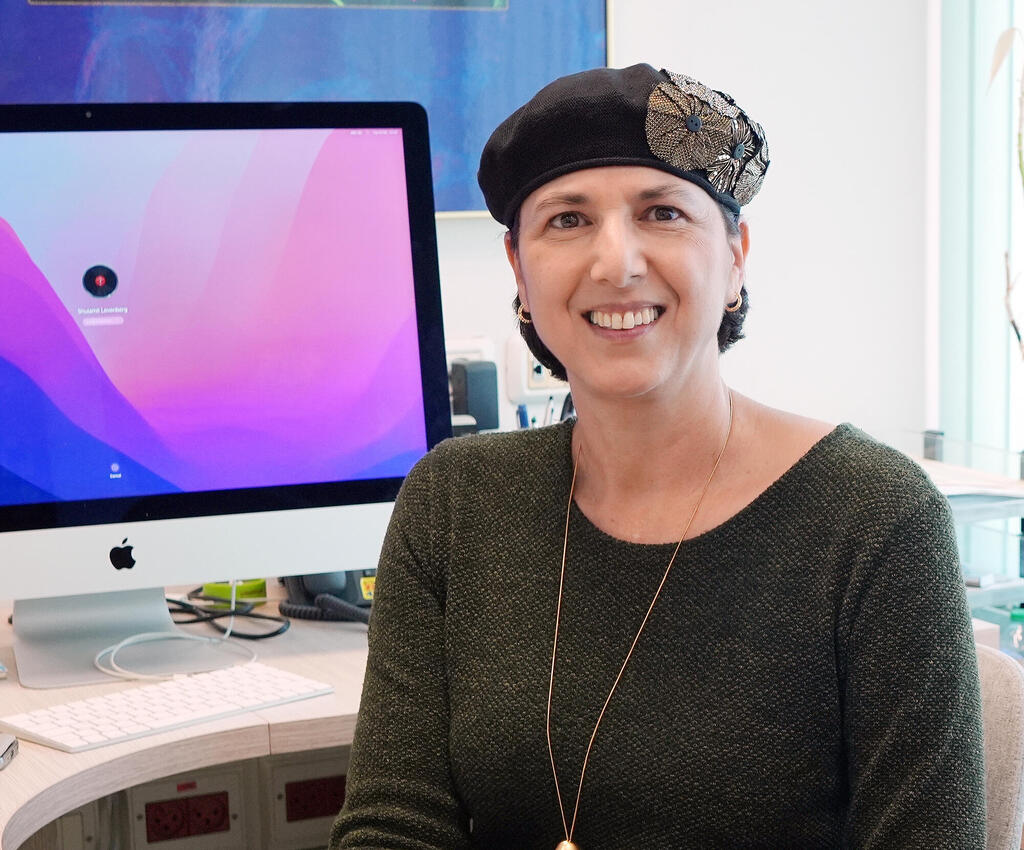
The Israeli researcher leading the way in cultured meat innovation
The Technion's Prof. Shulamit Levenberg is the Co-Founder and Chief Scientific Advisor at Aleph Farms, the first company in the world to receive approval to market cultured steak. This is only one of her ventures, and not even close to the most ambitious
If everything goes according to plan, in a few months a restaurant in Israel will serve a meat steak that was grown in the factory by Aleph Farms, an Israeli cellular agriculture company. The company has received approval from the Ministry of Health to market its product, only the third company in the world to be granted such approval, and the world's first to receive approval to market lab-grown steak.
Aleph was born in the laboratory of Prof. Shulamit Levenberg, head of the Laboratory for Stem Cells and Tissue Engineering at the Biomedical Engineering Department at the Technion. Surprisingly, this isn’t the only thing brewing in her lab, and perhaps not even the most ambitious.
About 160 companies across the world have entered the race to produce cultured meat, including five Israeli companies. Aleph is one of the three that received regulatory approval (two American companies will market lab-grown chicken), and is considered one of the most promising in the field. "I was very excited when we received approval from the Ministry of Health; it's an important milestone," says Levenberg, Co-Founder and Chief Scientific Advisor at Aleph. "To think that a few years ago we tossed around the idea and said 'let's see if it's even possible,' and now we're on the way to people actually being able to enjoy it. It's heartwarming and a source of pride, especially this year."
Aleph's products are based on innovative technology developed by Levenberg and her team at the Technion: cells derived from a cow's fertilized egg grow in bioreactors on a substrate of soy and wheat, and transform into muscle tissue that solidifies into thin slices of beef steak. "We've worked extensively in the lab to mimic muscle tissue, so we can implant it in humans and assist in medical procedures. We developed a technology that allows us to sort cells and produce muscle tissue, and many years ago we wondered if it could be meaningful in the food industry. It came up again when my doctoral student, Tom Ben-Aryeh, asked to do his doctorate on lab-grown meat development, and we decided to go for it."
While Aleph has indeed overcome the significant initial hurdle, the path for lab-grown meat to succeed is still long. Companies in the field manage to produce only small quantities of meat at very high costs, but Levenberg believes in the industry's ability to grow. "Every industry takes time to develop; the challenges are significant, but there's progress and costs are decreasing," she says. "It doesn't happen overnight, the products won't suddenly appear in supermarkets. But the public understands their value and importance, and technology is advancing. This needs to be done."
When Levenberg says "this needs to be done," she refers to the tremendous changes in the world due to population growth and reliance on inefficient agriculture. The meat industry is the largest polluter of water and one of the most significant sources of greenhouse gas emissions, while the rate of those suffering from malnutrition is only rising. Even if the lab-grown meat industry won't soon replace industrial livestock production, when it reaches significant scale it may be able to reduce the polluting industry and help countries strengthen their food security. "Over 85% of the meat is imported into the country. We don't want to rely on ships that may not be able to arrive," Levenberg says. "Today we understand how significant this is, and how important it is to strengthen our food security."
Meanwhile, she is already working on developing the technological infrastructure for the next generation of products: technology for printing thick and marbled meat slices. "It's a scientific and technological challenge," she says. "The steak cut that we'll launch this year will resemble minute steaks, but in the future versions we'll be able to produce according to customer demand. We'll have products like ribeye, a steak composed of fat and muscle, and we'll be able to enrich it with iron and vitamins. This is a field that is developing amazingly in Israel. Innovation is in our DNA, and Israel can lead the field."
The government’s budget will significantly cut funding for the main science units in government ministries. Will this affect Israeli innovation in the field?
"These technologies require investment in research and development in academia. Companies are founded based on ideas that grew in academia, and if there are no budgets, researchers won't have a place to develop innovative thinking and we won't be able to be creative. Without the state recognizing and funding research, it's impossible. That's also the way to grow the young generation of researchers who later move into the industry."
Levenberg has made her name in pioneering research in stem cells and tissue engineering. She is considered a groundbreaking scientist in biomedical engineering and has garnered many awards, such as the Krill Prize, the Bruno Award, and the Rappaport Prize. She was included in Scientific American’s list of the top 50 scientists in the world and was recently elected a fellow of the National Academy of Inventors. For years, she has been training the next generation of scientists in her lab at the Technion, paving the way for other women in the world of science.
These days, she continues to develop tissues in her lab to replace natural tissue in people who need transplants. "We want to create tissue from the patient's own cells, so it fits them exactly, because synthetic replacements don't function well. We're working on tissue that has blood vessels and can be connected via blood vessels. We're still doing transplants in lab animals, but we've developed the technology enough to be able to transplant in large animals - a step before transplantation in humans. We're very close, and within a few years, it will happen."
At the same time, she founded NanoSynex, which is developing a chip that can perform within hours tests for antibiotic suitability for patients instead of the long days currently required, and she founded Noraxon, which develops exosomes (tiny bubble-like particles carrying proteins and genetic information) from stem cells for healing damaged spinal cords.
Additionally, together with Sheba Medical Center, Levenberg recently succeeded in engineering an ear. Up to 0.2% of children are born with underdeveloped ears that are small and distorted. Today, reconstruction is done by taking cartilage tissue from the patient's chest, a painful and complicated procedure. Levenberg and her partners developed a biodegradable auricle scaffold on which a personalized implantable ear grows, allowing for the formation of an aesthetic and stable ear.
"I'm lucky that I'm doing what I love," she says, "a combination of research, new thinking, and new directions in areas that are important to humanity and quality of life. And I also see a significant challenge in educating the younger generation of scientists, leading them until they become independent researchers. Everyone finds their place where they can make the world a better place. This is my place."














